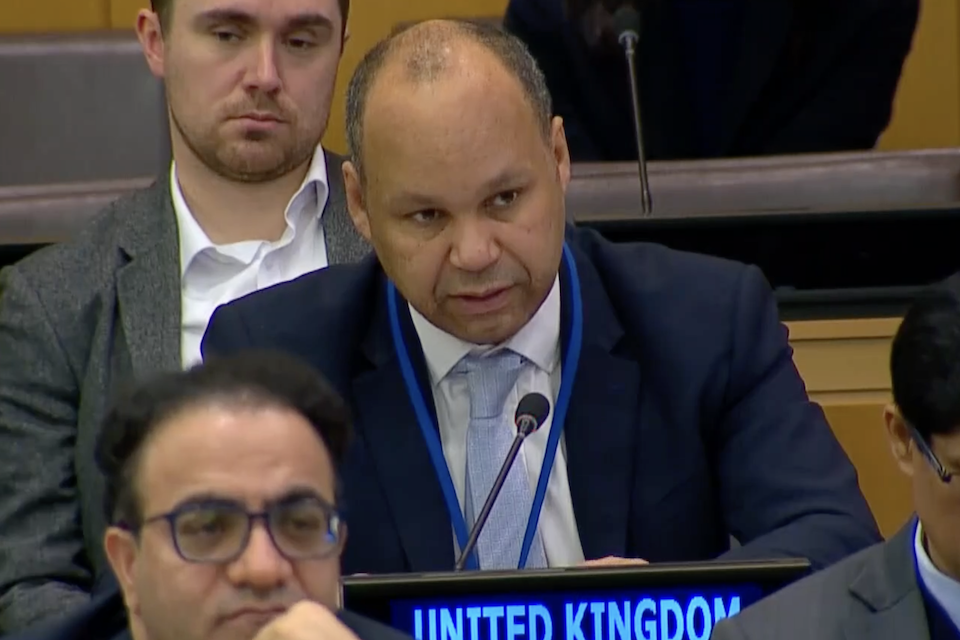Aid delivery without the participation of women cannot be normalised, and impairs the entire population
Statement by Ambassador James Kariuki at the UN Member States Briefing on the Humanitarian Situation in Afghanistan

Thank you, Martin, and thank you to your IASC colleagues for this important briefing.
The UK welcomes your mission to Afghanistan just as we welcome that of the Deputy Secretary-General previously. We believe that regular senior UN level engagement, in close coordination with NGOs, will be important in the weeks and months ahead as we navigate a way forward.
As you have told us, the consequences of the Taliban’s edicts on the humanitarian community’s ability to tackle one of the world’s biggest humanitarian crises are painfully evident.
Female humanitarian workers play a critical role in accessing Afghan communities in need: they reach populations their male counterparts cannot.
The consequences of the edicts will not be limited to our ability to provide humanitarian assistance to the Afghan people. They will also have a wider impact across our collective interests - across counter-terrorism, counter-narcotics, and regional stability.
The Taliban’s systematic attempts to erase women from society will have clear costs on Afghanistan’s economy, stability and security. We are clear there can be no movement on recognition until the Taliban meets the expectations of the international community which have been set out repeatedly in successive Security Council resolutions.
We must remain united, firm and unequivocal in our message to the Taliban: aid delivery without the participation of women cannot be normalised, and impairs the entire population – not only women and girls.
So the UK calls on the Taliban to guarantee the safety and status of all humanitarian staff, female and male, international and national. Their critical role needs to be understood at all levels – from national representatives to provincial security forces and district level officials.
As we continue to monitor development in Afghanistan, the international community needs to listen and respond to the voices of Afghan women. Their voices must be heard at all levels of the humanitarian response. That means high levels of transparency from humanitarian partners on the challenges they are facing in ensuring that women are able to access and participate in the delivery of assistance.
We should continue to use evidence-based arguments to demonstrate to the Taliban the impact of their edicts.
So Martin, to close, the UK calls on the Taliban to reverse their damaging edicts and take action to ensure all communities have access to aid and basic services.
And we, the UK, will continue to support the humanitarian community as you engage the Taliban on these challenges in the weeks and months ahead.
Thank you.